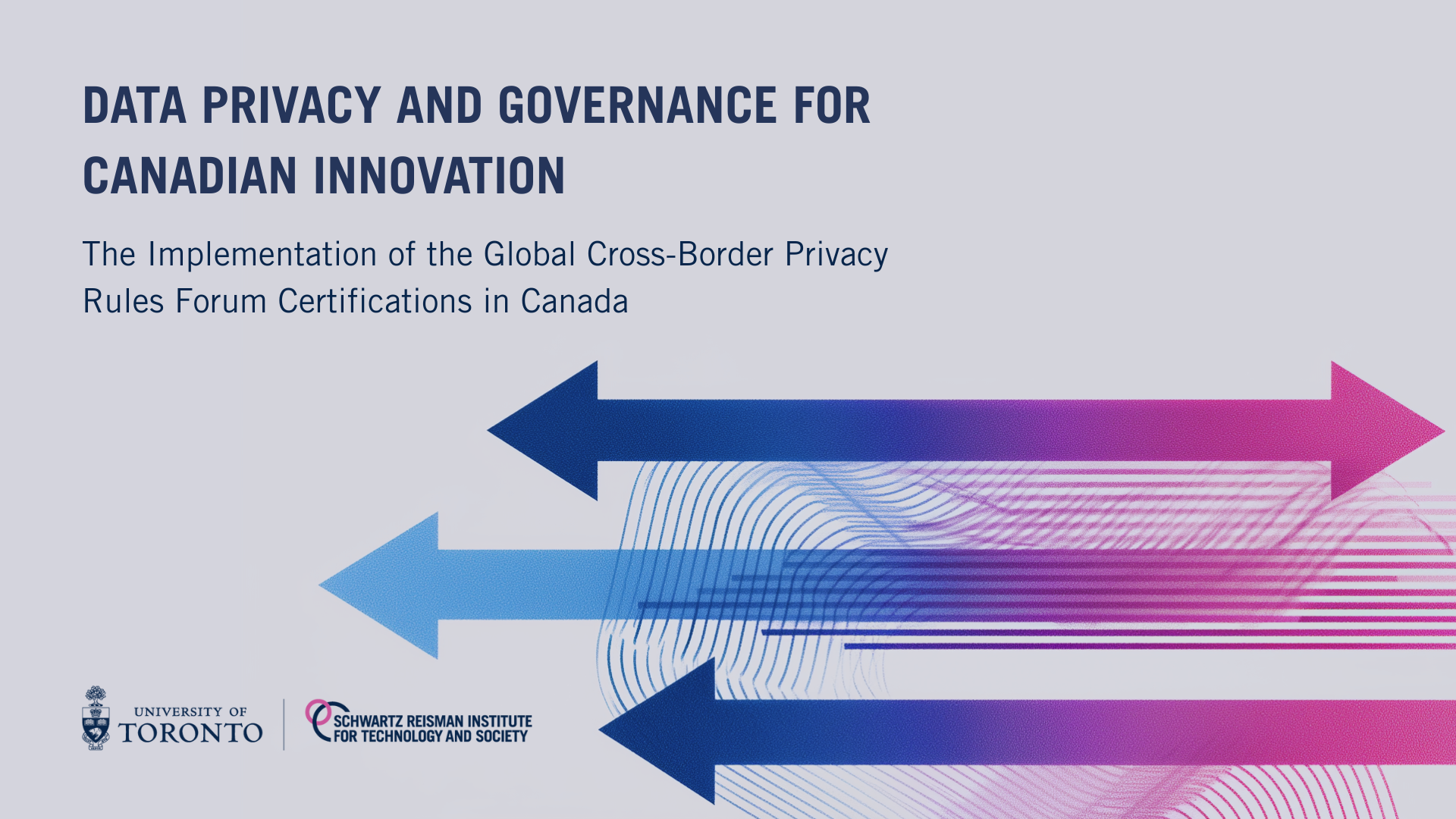Data privacy and governance for Canadian innovation: SRI responds to Canada’s implementation of global privacy certifications
Canada has a pivotal opportunity to strengthen public trust and global leadership by embedding international privacy certifications into its digital governance framework.
The Schwartz Reisman Institute for Technology and Society (SRI) has released its response to the Government of Canada’s public consultation on the implementation of the Global Cross-Border Privacy Rules (CBPR) and Global Privacy Recognition for Processors (PRP) certification systems.
Launched by the Global CBPR Forum—an international initiative with nine member jurisdictions, including Canada as a founding member— these certifications work by allowing independent, recognized organizations called Accountability Agents to assess a business’s privacy practices against agreed international standards, monitor ongoing compliance, and provide accessible dispute resolution options. With the digital economy increasingly dependent on secure data exchanges, their adoption represents a pivotal opportunity for Canada.
The SRI Policy team outlines how Canada can leverage these frameworks to advance privacy protection while unlocking new avenues for innovation and economic growth.
Their response highlights that "strong privacy protections and trusted data flows are not barriers to innovation—they are prerequisites for it. By adopting the CBPR and PRP systems in a way that reflects Canadian values, Canada has the chance to strengthen public trust, empower SMEs, and position itself as a leader in the global digital economy.”
Why CBPR and PRP matter
These internationally recognized frameworks are designed to promote responsible data flows and privacy accountability in a global digital economy. By implementing CBPR and PRP systems, Canada can:
Boost economic opportunities for Canadian businesses, particularly small and medium-sized enterprises (SMEs), by reducing barriers to international markets.
Reinforce trust by improving interoperability between different privacy and data protection regimes, and enabling transparent and verifiable privacy practices.
Support AI and digital innovation, where access to high-quality, responsibly managed data is both a strategic advantage and a public trust imperative.
SRI’s recommendations
In its submission, SRI emphasizes that the success of CBPR and PRP implementation depends on careful design choices and alignment with Canada’s broader privacy modernization agenda. Key recommendations include:
Adopting a hybrid accountability agent model that balances public oversight with private-sector expertise, ensuring both legitimacy and scalability.
Prioritizing incentives over phased implementation, with a focus on encouraging SME participation through funding, guidance, and integration into startup pipelines.
Embedding certifications within modernized privacy frameworks, ensuring they complement rather than substitute for strong domestic safeguards.
The bigger picture
As Canada advances its AI-driven economic strategy in the wake of the 2025 G7 Leaders’ Summit, strengthening privacy and data governance is not just a regulatory necessity but a strategic priority. With AI systems growing in scale and sophistication, implementing CBPR and PRP certifications offers a timely, practical step toward a trustworthy, competitive, and innovation-ready data economy.
SRI remains committed to supporting the Government of Canada in advancing data protection frameworks that reflect Canadian values and global leadership.







